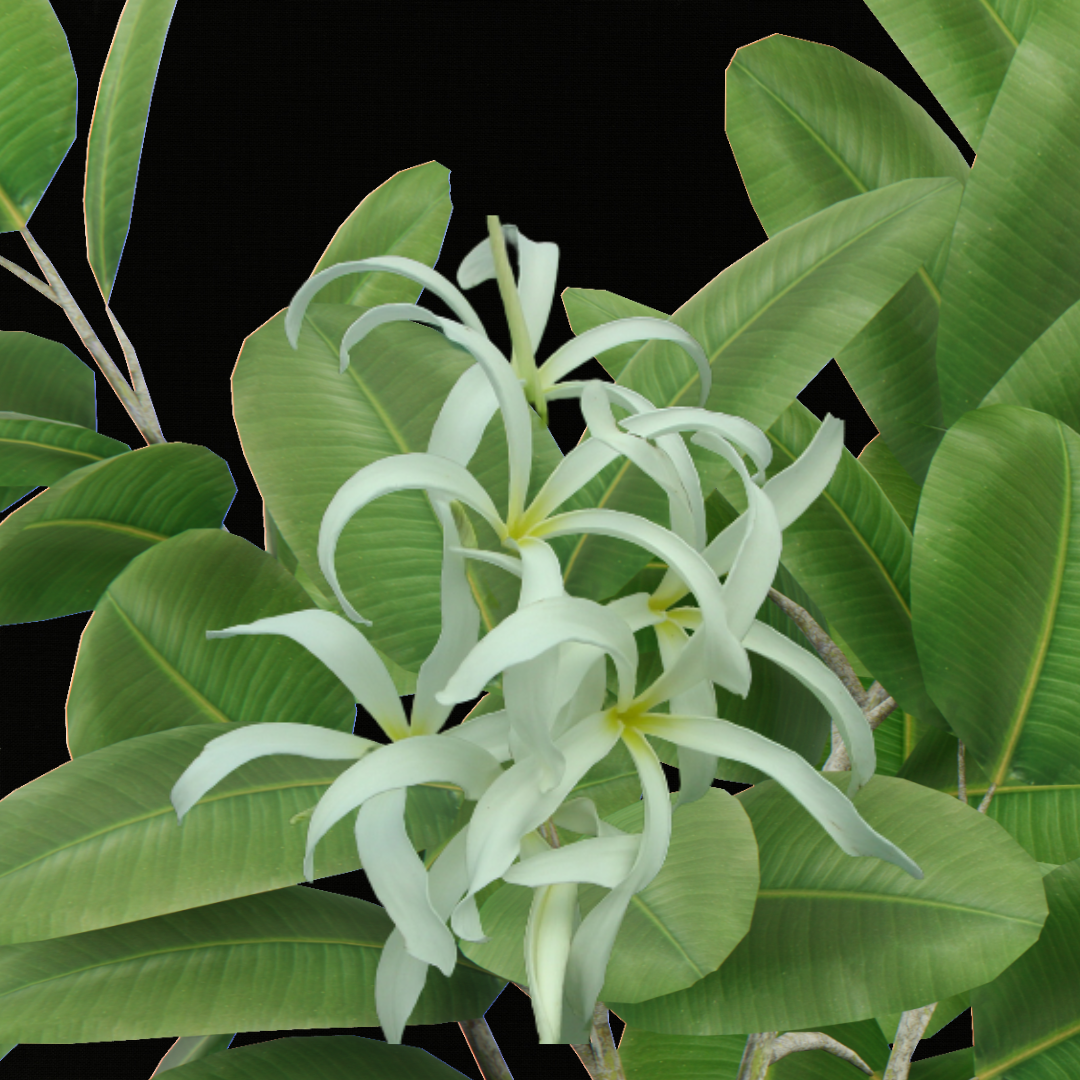

Germination of
Plumeria Stenopetala
Twisted Cuban Plumeria, Nosegay Frangipani, Frangipani, Lei Flowers, Hawaiian Lei Flowers, Temple Tree, Graveyard Tree, Melia, Champa, Pagoda Tree, Singapore Plumeria, Jasmine Sambac

Seed Preparation: Plumeria seeds have a hard outer shell. To improve germination, soak the seeds in lukewarm water for 24-48 hours. Some gardeners also recommend lightly scoring the seed coat with a file or sandpaper to help water penetration.
Seed Planting: Choose a well-draining potting mix or a combination of peat moss and perlite. Plant the Plumeria seeds in the prepared soil mix. Sow the seeds shallowly, barely covering them with a thin layer of soil.
Container: Use pots or containers with drainage holes to avoid waterlogging. Ensure the containers provide ample space for root development.
Location: Place the containers in a warm and bright location, such as a sunny window sill or under grow lights. Plumeria seeds require warm temperatures between 80-85°F (27-29°C) for successful germination.
Moisture: Keep the soil consistently moist but not waterlogged. Water the seeds gently to avoid displacing them or compacting the soil. A spray bottle can be useful for misting the soil.
Covering: Consider covering the pots or trays with a clear plastic lid or plastic wrap to create a greenhouse effect, maintaining high humidity around the seeds. Ensure adequate ventilation to prevent fungal issues.
Germination Time: Germination for Plumeria seeds can take anywhere from several weeks to a few months, so patience is key. Some seeds might sprout earlier than others.
Transplanting: Once the Plumeria seedlings have developed several sets of true leaves and are robust enough to handle, they can be transplanted into individual pots. Ensure careful handling of the delicate seedlings.
Remember that Plumeria seeds may exhibit varied germination rates, and it's essential to provide consistent warmth, moisture, and bright light throughout the germination process. Be attentive to the needs of the seeds and seedlings to increase the chances of successful germination and healthy growth.
Some of plants may have very have specific germination requirements that may not be covered in these general instructions.
Many seeds require pre-treatment before sowing which we try to list here when we can, but this information may not be present here. Germination times and germination temperatures are to be a guide only. Many factors can DRASTICALLY affect this.
It's always a good idea to research the specific germination requirements from multiple sources for each plant before attempting to grow them from seed.